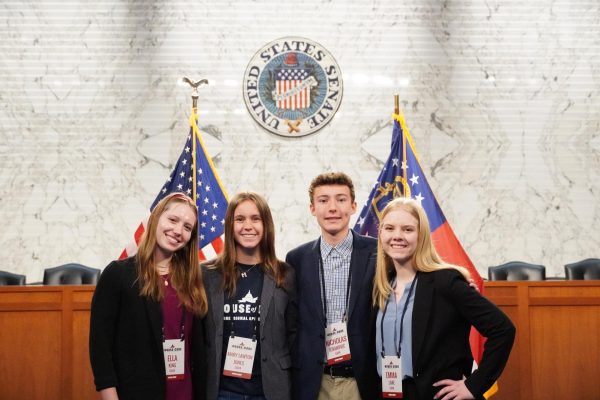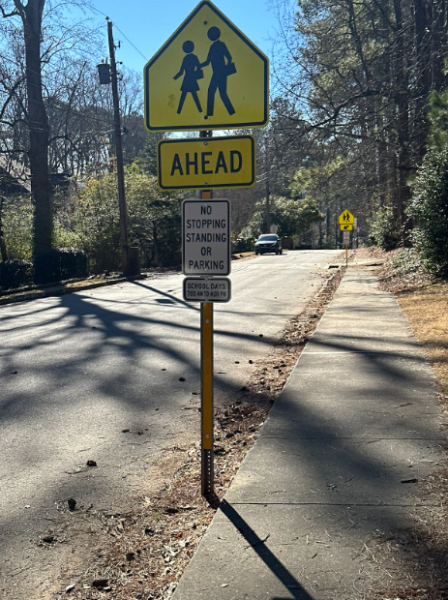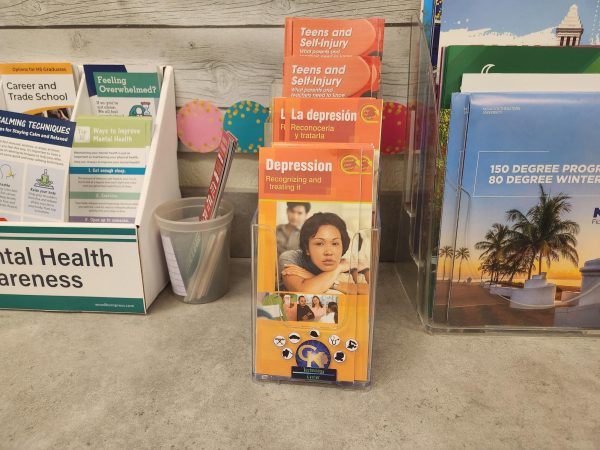Proposed Dual Enrollment Bill Limits Hours and Limits Opportunity for Students
Massive changes to the state’s beloved dual enrollment program are currently moving through Georgia’s legislature, and could fundamentally change the way that dual enrollment in the state functions. The proposed bill intends to cut spending on dual enrollment, and this decision by state lawmakers has drawn the ire of many students at Chamblee and around the state, who think that the alterations to the program will essentially gut it and take away opportunity for students.
At Chamblee, the possible stark changes to the program have been a hot topic of discussion since the dual enrollment information meeting hosted by the school counselors on February 4, which was underscored by the phrase “as of today.” After every piece of information they gave the audience about the program, the counselors reiterated that things could change, because with the new legislation, everything could be different.
Georgia House Bill 444 would limit the maximum amount of hours a high school student can take to a total of 30 credit hours if they want them to be paid for by the state. It would also stringently limit dual enrollment opportunities for ninth and tenth graders. These changes worried a lot of students currently participating in dual enrollment at Chamblee.
“I don’t know too much about the legislation, but I am a little bit concerned,” said junior Nicholas Oselette, who began dual enrollment this year. “I’ll be able to take dual enrollment classes next year, but it really limits my options for next year. I’m taking two classes that are three hours per semester this year, so I’ve already used twelve of my hours up. I can only do three dual classes next year with these limits. ”
This sentiment was shared by many other juniors who plan to take dual enrollment classes next year, who feel that 30 hours is quite restrictive.
“The total for all of high school being 30 hours is definitely going to be a barrier to what classes I’m going to be able to take next year,” said junior Nolan Kurtzer. “If you do dual enrollment for more than two years, it’s going to be very hard to take less than 30 credit hours total, because I’m only taking two classes this year, and that’s twelve hours right there.”
Georgia Governor Brian Kemp is expected to sign the bill into Georgia law soon, as it has now cleared both the Georgia House and Senate. Therefore, students should be prepared to work within the new limits the bill outlines.
“Now that I know this is most likely going to become law, I’ve started looking at the classes that I’m going to take next year and I’m being very selective with them,” said sophomore Alex Jovanovic. “I’m making sure that I’m not just going to sign up for a class that’s going to end up being a waste. I want to make the most of the classes that I dual enroll in.”
Juniors who are taking dual enrollment classes already didn’t have that luxury of being able to choose their classes carefully.
“I’m taking Astronomy this year as a dual enrollment class, actually,” said Oselette. “It’s a good class, and I wouldn’t really say I regret taking it, but with the new hour limits there may be classes next year that I want to take that I can’t. So maybe Astronomy wasn’t a class I should have taken, I don’t know.”
Other students are more worried about the effects of these changes on students who planned to utilize dual enrollment to work towards an associate’s degree.
“The cuts to the program may be good for the state budget, but they aren’t good for students,” said senior Tiffany McWilliams, who participates in the dual enrollment program at Georgia State University. “I think investing in education is a really important thing and these changes will limit opportunities for kids across the state to get ahead in education. Now it will be impossible for students to earn an associate’s degree before graduating high school, since the changes limit the number of hours the state will cover.”
Other students didn’t have as much of a problem with the changes.
“I think I took good classes this year, like calculus,” said Kurtzer. “I don’t think that the limits are really going to be an issue, because I didn’t plan to take more than 30 hours anyways. Maybe for some other people it’s going to be a problem, but for most students, I don’t think they’re going to go over 30 hours. So the changes should be fine for most people.”
But others disagree, stating that the limit on hours is going to harm the program and a lot of students.
“30 credit hours translates to one year of full time dual enrollment,” said McWilliams. “There are a lot of kids at CCHS who did part time dual in their junior year, and then full time senior year. After this new limit goes into effect, students won’t be able to do that. The option to do part time dual enrollment one year and then full time the next, as well as the option to earn an associate’s degree will now be off the table, which is unfortunate. I’m disappointed by these changes, to put it simply.”
Your donation will support the student journalists of Chamblee High School Blue & Gold. Your contribution will allow us to print editions of our work and cover our annual website hosting costs. Currently, we are working to fund a Halloween satire edition.








